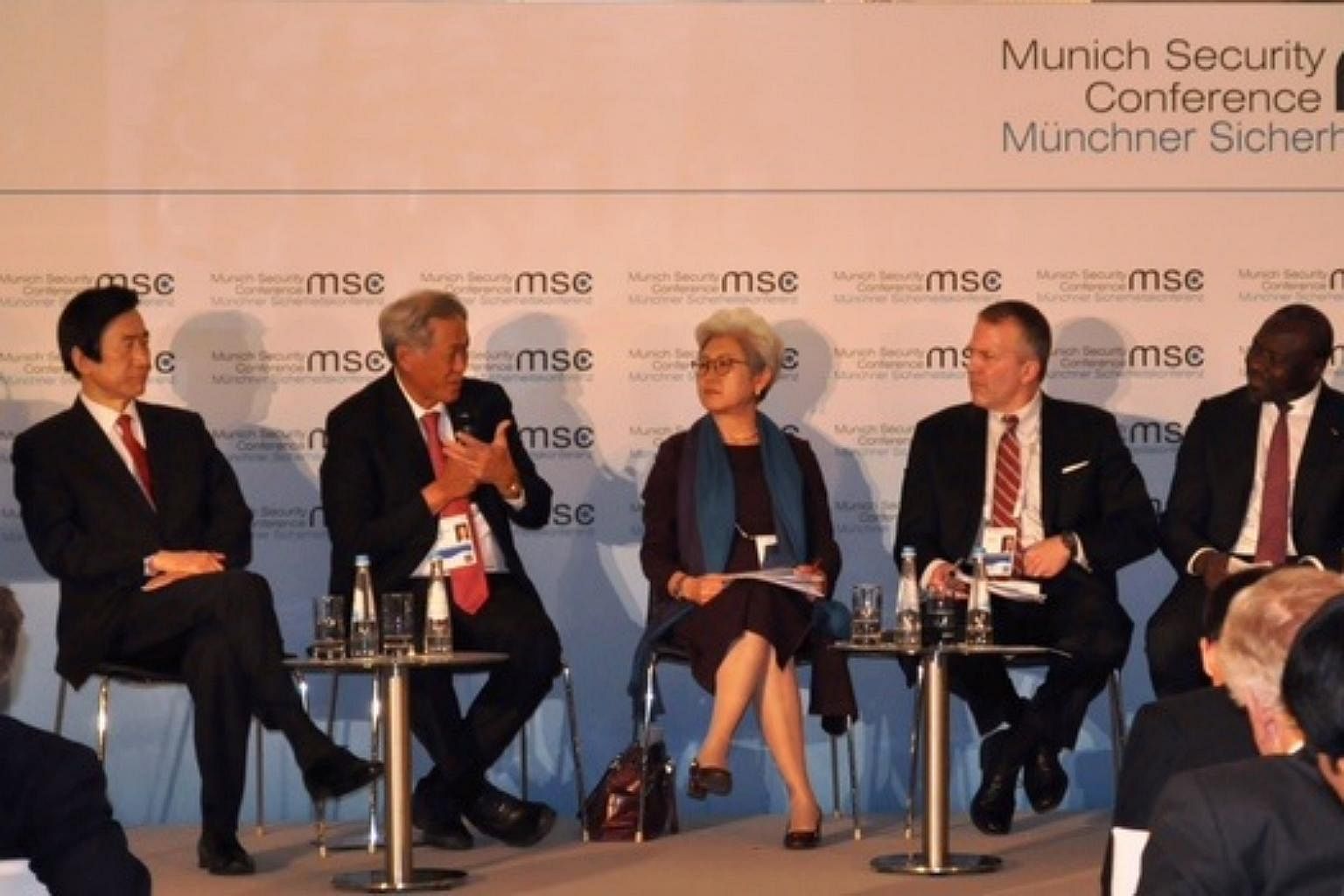US and China should articulate foreign policy objectives, says Ng Eng Hen in Munich
Sign up now: Get ST's newsletters delivered to your inbox

Defence Minister Ng Eng Hen (second from left) addressing the 53rd Munich Security Conference during his speech.
PHOTO: MINDEF
MUNICH - Defence Minister Ng Eng Hen has called on both Washington and Beijing to spell out their foreign policy objectives in Asia, now that a new United States administration is in charge.
Speaking at the Munich Security Conference on Saturday evening (Sunday 12am, Singapore time), he noted that how the US and China engage with each other and other Asian countries, will have significant impact on the stability of the Asia-Pacific, including in East Asia, the Korean Peninsula, and South-east Asia.
He told fellow defence ministers from the US, Europe and key partners that if the US adopts an anti-China stance, "it will be a frustrating decade ahead for many of us in Asean and in Asia".
"Similarly for China, if its efforts are viewed as means to usurp US as the resident Pacific power, countries will de facto have to choose sides and be put into lose-win situations," he said at the high-level security conference, conducted annually in Germany since 1963.
Dr Ng added that if both countries conduct foreign policy on a transactional basis, such an approach would give rise to trading and even security blocs.
This could mean the US would provide a security umbrella in exchange for trading and commercial privileges. Or China could use security considerations to barter with countries that need access to Chinese markets.
The US military's presence and influence in the Pacific is not in doubt, Dr Ng said. "But this military prowess while necessary is insufficient for continued stability and progress in Asia," he added.
Dr Ng also called upon China - a rising power - to articulate an inclusive vision for Asia and beyond.
"That vision will realistically serve China's interests but not exclusively, and must also provide other countries the assurance of clear common and acceptable rules around which countries can evolve a new order."
He cited regional integration initiatives such as the One Belt One Road, Asian Infrastructure Investment Bank, and Regional Comprehensive Economic Partnership as initiatives that "Singapore fully supports and will facilitate".
Dr Ng also noted the contrast between US President Donald Trump's "America first" governing approach, and former US president John F. Kennedy's pledge to Asia - at the start of the Cold War in 1961 - that the US would "pay any price, bear any burden to assure the survival and the success of liberty".
The fight against the spectre of communism gave countries a common cause to rally around, and justified the expansion of US influence in Asia, Dr Ng said.
Over time, the US also led the establishment of institutions that form the fabric of globalisation today, he added.
"On what basis will the continued US presence and influence be legitimised under an 'America first' policy?" he asked.
In these uncertain times, he said, existing platforms such as the Asean Regional Forum, East Asia Summit, and the Asean Defence Ministers' Meeting-Plus will need to help promote better understanding between the US, China, and other countries in the region.


